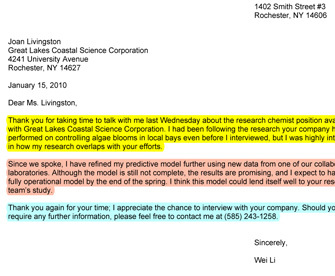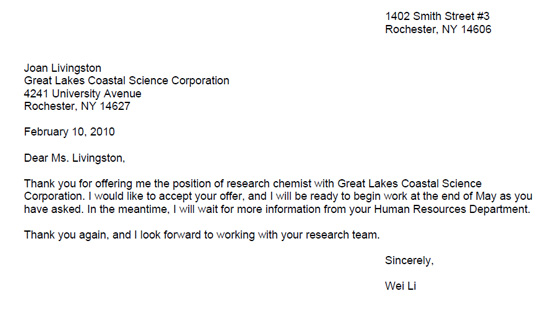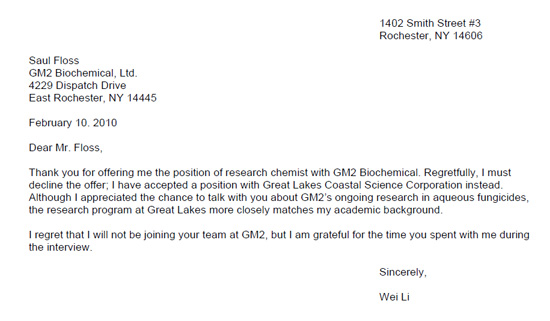« Prev Next »

Thank You Letter
Thank-you letters
Following an interview, write your interviewer a brief thank-you letter. This common courtesy lets the interviewer know that you understand business etiquette and calls his or her attention to your application once again. When you write the letter, mention the specific job for which you interviewed because some recruiters might be conducting multiple job searches.
Many job applicants will send out a standard letter, simply thanking the interviewer and restating that they are interested in the job. If you are truly interested in a position, however, you should write a specific, tailored letter. Take a few notes fairly soon after your interview — not only on the kinds of questions you received, but also on the information that your interviewer shared with you. Later, you'll be able to write an effective thank-you letter by choosing a few specific and relevant details from your notes. These unique details can set your letter apart from the form letters submitted by your competitors. Still, keep your letter short — this is not the time to provide more information about your credentials.
You may be interviewed by several people, and you will make a good impression if you send them all a thank-you letter. If you have access to the e-mail addresses of your interviewers, and if earlier correspondence suggests that they welcome and respond readily to e-mail, that may be an acceptable way to send your letter. Whether you send a hard copy letter or an e-mail, try to send your thank-you letter within a week after the interview.
To the right is a sample thank-you letter that Wei Li sent to Great Lakes Coastal Science Corporation following her interview. Note that the tone she uses here is professional and that she has selected one point from the interview for elaboration. This shows the interviewer that she has thought about the position since she interviewed — a sign she is serious about the job.Note that this letter is quite brief — barely half a page — and does not overload Ms. Livingston with unnecessary detail or chatter. The letter serves its purpose well: It thanks the interviewer for her time and lets her know that the applicant is still interested in the position.
Letters of refusal and acceptance
If you have been offered a job, let the company know as soon as is reasonably possible whether you accept or decline the position. Even if you verbally express your intent, you should still send the organization a formal letter. In the following example, Wei has written to accept a job offer with Great Lakes Coastal Science Corporation:
Note that Wei's tone is respectful and enthusiastic, but she does not flatter Ms. Livingston or the company. The company itself may require that she sign a formal contract (the information from the Human Resources Department that Wei refers to), but this letter confirms that she will accept the position she has been offered.
Even if you are declining a job offer, you should still remain professional and positive in your tone. Briefly explain your reasons for not taking the job. Make sure you are courteous and that your reasons are believable and legitimate. You want the company to understand that they did not waste their time interviewing you and that you took their offer seriously. Remember that you might want to interview at this same company again someday, and interview committees can have a long memory if you leave a bad impression in your letter of refusal.
In the letter below, Wei has written to another company to let them know she has chosen to accept the offer from Great Lakes Coastal Science Corporation instead:
In this letter, Wei declines the job at GM2 politely and respectfully. Her reason here is legitimate: The position at Great Lakes is closer to her own research. Note, however, that she still expresses interest in GM2's research even as she declines; in this way, she shows respect for the company and for the interviewer's time. If she applies for a job at GM2 in the future, this letter will reflect well on her professionalism.

Within this Subject (22)
























